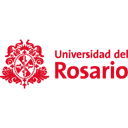This course is part of Género y sexualidad: construcción de espacios habitables.
This comprehensive course provides an introduction to gender and sexuality as social orders that regulate people's lives, structure social relationships, and operate as powerful matrices of meaning. Since the 1990s, gender and sexuality have gained significant importance, with multilateral organizations promoting gender equity and eliminating discrimination. At the same time, social movements for women's rights, feminist causes, and LGBTIQ+ communities have become relevant actors in recognizing rights and driving social change at national, regional, and global levels. The course examines critical questions like: What are gender and sexuality? Are they attributes that define what and who each person and body is? If these are individual characteristics associated with intimacy and internal affairs, why do they provoke such heated debates in legislative spheres, presidential elections, media, and institutions like schools and universities? Students will learn to problematize the notion of sexual difference, recognize gender as a social order involved in structuring power relationships, become familiar with approaches that identify heterosexuality as a social institution, and identify how gender and sexuality intersect with other forms of oppression.
Spanish
Español
What you'll learn
Problematize the notion of sexual difference from a critical perspective that questions its supposed naturalness and reveals how it is actively produced Recognize gender as a social order involved in structuring power relations and the formation of subjectivities and corporalities Become familiar with approaches that recognize heterosexuality as a social institution and propose strategies to destabilize its power effects Identify how gender and sexuality articulate with other forms of oppression such as race and social class
Skills you'll gain
This course includes:
PreRecorded video
Graded assignments, exams
Access on Mobile, Tablet, Desktop
Limited Access access
Shareable certificate
Closed caption
Get a Completion Certificate
Share your certificate with prospective employers and your professional network on LinkedIn.
Created by
Provided by

Top companies offer this course to their employees
Top companies provide this course to enhance their employees' skills, ensuring they excel in handling complex projects and drive organizational success.





There are 4 modules in this course
This course provides a comprehensive introduction to gender and sexuality as social systems that regulate lives and structure relationships. The curriculum is divided into four modules covering the relationship between nature and culture, gender embodiment, heterosexuality as an institution, and intersections with race. Throughout the course, students explore how sexual difference is socially constructed rather than natural, examine gender as a powerful social order shaping relationships and identities, analyze heterosexuality as a social institution with specific power dynamics, and investigate how gender and sexuality intersect with other forms of oppression like race and class. The course incorporates the case study of David Reimer across all modules, providing a real-world example to analyze these theoretical concepts. Various learning activities include reflections, artistic practices exploration, and analysis of gender, sexuality, and race in art.
Módulo 1 : Naturaleza vs. cultura: ¿acaso son diferentes?
Module 1
Módulo 2 : Los cuerpos del género
Module 2
Modulo 3 : ¿Cuándo supiste que eras heterosexual?
Module 3
Modulo 4 : Raza, sexualidad y género
Module 4
Fee Structure
Individual course purchase is not available - to enroll in this course with a certificate, you need to purchase the complete Professional Certificate Course. For enrollment and detailed fee structure, visit the following: Género y sexualidad: construcción de espacios habitables
Payment options
Financial Aid
Instructors

3 Courses
Expert in Transgender Studies and Sexual Politics at Universidad del Rosario
Flora Violeta Rodríguez Rondón is an anthropologist at Universidad del Rosario, specializing in transgender studies and sexual politics in Latin America.

2 Courses
Anthropologist & Professor at the University of Rosario
Luisa Fernanda Hernández Rueda, an anthropologist with expertise in Health Anthropology, focuses on memory, gender, and rights restoration for ethnic communities and conflict victims.
Testimonials
Testimonials and success stories are a testament to the quality of this program and its impact on your career and learning journey. Be the first to help others make an informed decision by sharing your review of the course.
Frequently asked questions
Below are some of the most commonly asked questions about this course. We aim to provide clear and concise answers to help you better understand the course content, structure, and any other relevant information. If you have any additional questions or if your question is not listed here, please don't hesitate to reach out to our support team for further assistance.



